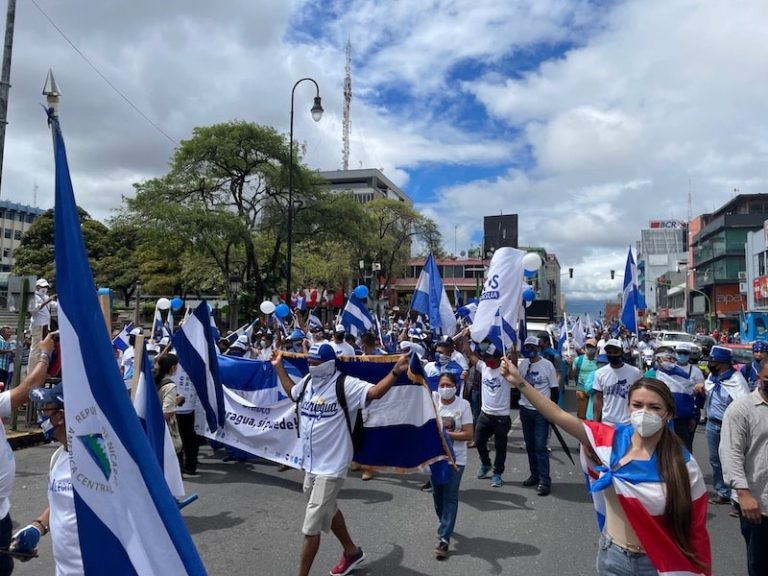1 de septiembre 2023

Children of Exile: The Births “Sowing Hope” in the Camp of Nicaraguan Farmers

PUBLICIDAD 1M
PUBLICIDAD 4D
PUBLICIDAD 5D
The tribunal ruled that the measure violated rights to refuge and freedom of movement, and the principle against discrimination based on nationality

Foto: Archivo | Confidencial
On August 30, Costa Rica’s Constitutional Chamber ruled unconstitutional a presidential decree stipulating that any exit from the country on the part of an asylum seeker would be considered a tacit withdrawal of their asylum claim.
“The Constitutional chamber found that this norm violated the provisions of Articles 22 and 28 of the Costa Rican Constitution, plus statutes of the Convention on Refugee States, and provisions of the American Convention on Human Rights, in terms of the right to asylum, freedom of movement, and the principle of legal reserve [which specifies that only Congress can establish a law regulating or restricting the basic rights],” the tribunal declared during a press conference.
In November 2022, Costa Rican President Rodrigo Chaves signed a decree reforming the Regulations for Refugees. One article of the decree stipulated that any request for an exit permit filed by an asylum seeker was tantamount to a tacit cancellation of their asylum application.
Another decree repealed earlier
The Constitutional Chamber also declared unconstitutional an article from a different 2022 decree, this one repealed in June 2023 by the Costa Rican government itself.
That article stipulated that in order to opt for the Temporary Special Status established for Cubans, Nicaraguans and Venezuelans, these people should renounce their request for asylum or to an appeal, if they’d already been denied refugee status.
“Although it is an attribution of the Executive Power to draw up the immigration policy of the Costa Rican State, and define actions to face the situation the country is currently experiencing with the increase in requests for refuge from people from Cuba, Nicaragua and Venezuela, due to the deepening of the political, social, economic and public order situations in those nations, the contested provisions are unconstitutional,” indicated the Constitutional Chamber in a statement.
Since the political and social crisis began in Nicaragua in 2018, tens of thousands of Nicaraguans have fled to Costa Rica, overwhelming the country’s capacity to process the resulting flood of asylum requests.
There are currently more that 200,000 asylum applications pending in this country of just 5.1 million inhabitants. The majority of the requests for refugee status are from Nicaraguans, but they also come from Venezuelans, Cubans, and Colombians, among other nationalities.
This article was originally published in Spanish in Confidencial and translated by Havana Times.
PUBLICIDAD 3M
Agencia de noticias internacional con sede en Madrid, España. Fundada en Burgos durante la guerra civil española en enero de 1939.
PUBLICIDAD 3D